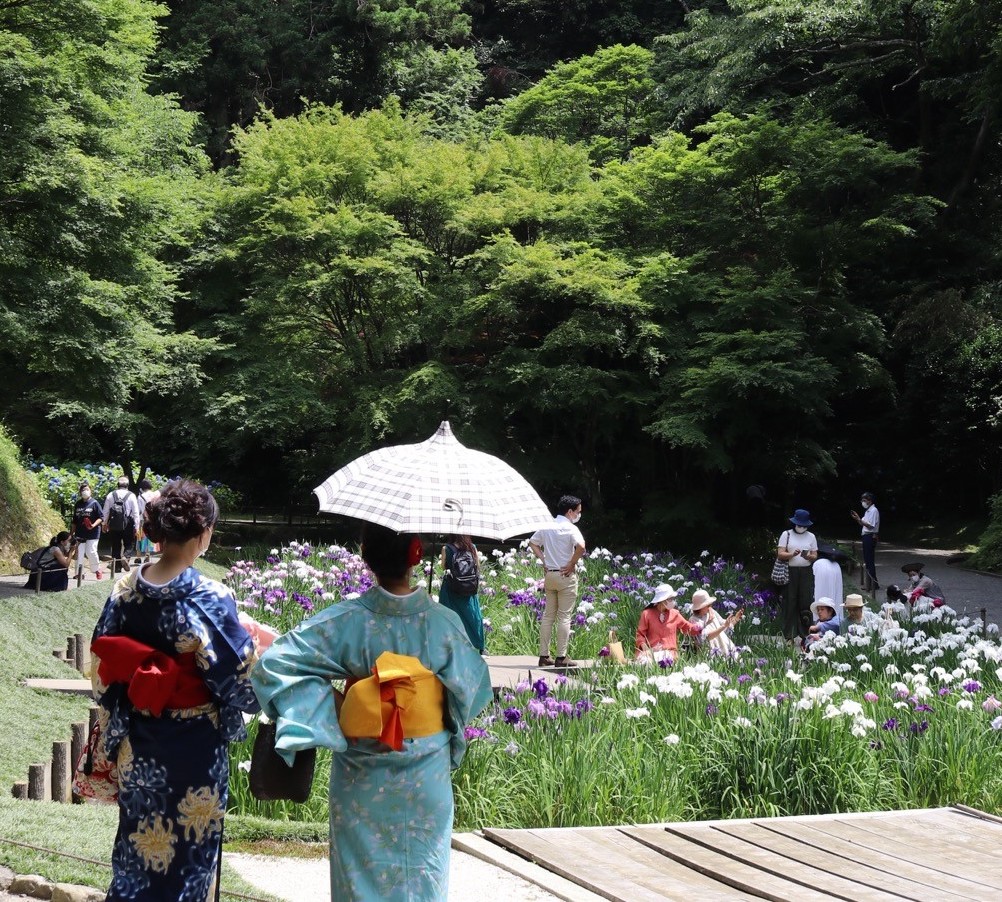The Estimable Benefits of Communing With Nature
"[Although having diverse research is critical], it becomes a little bit difficult to bring everything together.""[The new study, however representing a systematic review of approximately 300 peer-reviewed scientific papers creates] an excellent knowledge base. The whole point of doing this exercise is to understand the connection [between human health and exposure to nature].""In reality, you don't just have one pathway. It's not that if I go to the forest, I receive one thing."Alexandros Gasparatos, associate professor, Institute of Future Initiatives, University of Tokyo"If we understand the underlying process, we can help to design better interventions for ecosystem management.:"We can help to improve the contributions of nature to human well-being."Lam Thi Ma Huynh, doctoral candidate, University of Tokyo"It's a long time coming to have a study like this that makes some of these linkages a little clearer.""This stuff has been scattered all over the place for a long, long time, and this paper takes a huge step forward in sorting out what has been previously pretty muddied.""What this is going to be seriously useful for is to be able to continue to work to make the case that physicians and clinicians can actually prescribe outdoor time, outdoor recreation, even outdoor space because of these pathways that they've identified in this paper.""If we continue on a pathway as a species of being in a state of ecological amnesia, we're going to find ourselves out of habitat and out of time and, therefore, out of luck."Keith Tidhall, environmental anthropologist, Cornell University, Ithaca, New York"That sets us up to be able to say that when we facilitate this kind of interaction with nature, you see this kind of benefit.""Or have policies that say that you're really depriving someone of their mental health if you destroy these natural landscapes."Elizabeth Hasse, chair, American Psychiatric Association committee on climate change and mental health
Amongst genteel society in 19th century England, it was a common practise to take a post-prandial walk on the estate grounds to aid digestion, a notable part of human health. In America, Henry David Thoreau gained an impressive following when he wrote about his Walden retreat, to live within nature. There have been countless people through the ages and in all parts of the world that have recognized the benefits inherent in close proximity to green vegetation, to communing, as it were, with nature.
Many great thinkers found inspiration for their writing while walking through a forest, or solutions to problems they mulled over while walking bending their minds to the solace and solitude of exposure to the natural world. It is the kind of exposure that leads to clearer heads, silent appraisal of the world around us, contemplative serenity, and inspiration. Municipal councils are well aware of the importance of the 'urban forest' within cities, not only to cleanse the air we breathe, but to clear our minds of detritus through exposure to green surroundings.
It is interesting that a new study has come out of a mega-study of previously published papers on humanity and exposure to natural environments; and the benefits thereof, coming out of Japan. The Japanese venerate nature, as do many other cultures. They are famed for their 'green thumbs' and the sought-after adventures of trekking mountains and forests. The Zen Buddhist gardens that can be found in Japan are places of rest and beauty. Carp ponds abound in the green environs of urban Temples.
And now a new paper published in the journal Science Advances, outlines the spiritual, mental and physical benefits to be had through exposure to natural surroundings. Researchers identified no fewer than 227 unique pathways reflecting people's interactions with nature resulting in positive effects, but they also outline some areas that negatively affect human health. The latter somewhat less convincing than the former.
The paper's lead author, doctoral candidate Lam Thi Mai Huynh, was led to this research out of curiosity and a wish to improve knowledge surrounding the underlying complex process bespeaking nature's intangible effects; opportunities for recreation and leisure or spiritual fulfillment and their impact on well-being. Existing scientific literature appeared "highly fragmented" in its views of cultural ecosystem affects.
Hundreds of possible links between individual aspects of human well-being (mental and physical health, connectedness and belonging, and spirituality, among others) and cultural ecosystem services such as recreation and tourism, aesthetic value and social relation are broken down, with researchers going on to identify over a dozen distinct underlying mechanisms where people's interactions with nature can affect their total well-being.
The highest positive contributions were seen by researchers in mental and physical health. The 'regenerative' mechanism of experiencing restorative effects from being in nature were attributed to recreation, tourism and aesthetic value. Stress relief, according to the paper, was an absolute positive. On the other hand, they were moved to link negative effects to mental health through a 'destructive' mechanism; direct damages associated with the degradation or loss of cultural ecosystem services.
As an example, they wrote, a well-designed park can be a place for recreation and leisure, along with being a designation to connect with other people. A poorly maintained natural space could lead, they believe, to an ugly or visually threatening landscape that might make some feel uncomfortable or fearful of its environment. Which seems counter-intuitive to anyone who regularly makes it a practise to hike through the trails of a natural forest. Where, needless to say, the maintenance is nature's own and it does not resemble a well-manicured park in any way.
 |
| Visitors leisurely enjoy an iris garden in Japan. Of all the pathways linking a single cultural ecosystem service to a single constituent of well-being captured from the academic literature, 86.3% represented positive contributions compared to just 11.7% negative contributions. 2022 Nicola Burghall CC-BY-NC |
Labels: Environmental Exposure to Natural Surroundings, Human Health, Nature, Research



0 Comments:
Post a Comment
<< Home